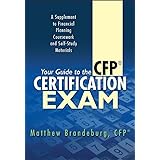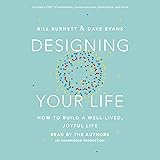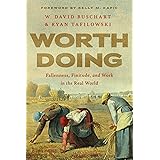Imagine standing at a crossroads, pondering your professional future. Perhaps you’re fresh out of school, contemplating a career change, or simply seeking new pathways to advance. The world of finance and accounting often appears complex, guarded by perceived barriers like university degrees and years of experience. However, as highlighted in the insightful discussion above with Andy Murray, Finance Manager at Orsum and an AAT Leicestershire Board member, this perception couldn’t be further from the truth.
Andy’s journey, along with the experiences of countless others, underscores a fundamental truth: the finance profession is diverse, dynamic, and surprisingly accessible. This article delves deeper into the invaluable insights shared in the video, expanding on entry routes, career progression, and the critical skills needed to thrive in an ever-evolving financial landscape.
Navigating Your Entry into the Accounting and Finance World
Andy Murray’s own career trajectory serves as a compelling narrative for aspiring professionals. He began in an entry-level office administration role, gradually taking on more finance-centric tasks while simultaneously studying for his AAT qualification. This hands-on experience, coupled with formal learning, proved to be an incredibly effective launchpad, culminating in his current role as a Finance Manager.
This path illustrates that a traditional university degree is far from the only gateway to a successful career in accounting and finance. Many individuals, like those on Future Connect Skills Bootcamps, start with practical, vocational training that provides direct industry relevance.
Diverse Pathways to an Accounting Career
The accounting profession offers a multitude of entry points, catering to various educational backgrounds and career aspirations. It’s a common misconception that a university degree is a mandatory prerequisite.
- **Vocational Qualifications (AAT, ICB):** Qualifications like the AAT (Association of Accounting Technicians) provide an excellent foundation. They focus on practical, real-world skills, making graduates job-ready. The ICB (Institute of Certified Bookkeepers) route, as Andy mentioned, is particularly well-suited for those looking to enter self-employment or practice.
- **Apprenticeships:** These programs allow individuals to earn while they learn, gaining practical experience alongside formal qualifications. They are an increasingly popular route, offering structured career progression from day one.
- **Skills Bootcamps:** For those seeking intensive, accelerated training, skills bootcamps offer a direct route into the industry. Often fully funded, these programs remove financial barriers and equip learners with essential practical skills like bookkeeping, software proficiency (e.g., Sage 50, Excel), and financial reporting.
- **University Degrees:** While not the only route, a degree in accounting, finance, or a related field certainly provides a comprehensive theoretical understanding. Graduates from these programs can often move directly onto chartered qualifications.
Each of these pathways is valuable and can lead to a fulfilling career. The crucial element is choosing the route that best aligns with your learning style, personal circumstances, and career objectives in the finance profession.
The Dynamic Nature of the Accounting Profession
Beyond entry points, the video discussion emphasized the incredible variety and rewarding challenges inherent in accounting. It’s much more than simply “crunching numbers”; it’s a field rich with diverse functions and opportunities.
A Spectrum of Specializations
Imagine if your daily work could shift from detailed transactional tasks to high-level strategic financial planning. This is the reality for many accounting professionals, including Andy Murray. The accounting career path allows for specialization in numerous areas:
- **Financial Accounting:** Focuses on reporting financial information to external stakeholders, adhering to strict standards.
- **Management Accounting:** Provides internal financial information to managers for decision-making, focusing on budgets, forecasts, and performance analysis.
- **Taxation:** Specializes in ensuring compliance with tax laws and optimizing tax strategies for individuals and businesses.
- **Audit:** Involves independently examining an organization’s financial records to ensure accuracy and compliance.
- **Forensic Accounting:** Investigates financial crimes and disputes.
- **Financial Planning & Analysis (FP&A):** Supports strategic decision-making through forecasting, budgeting, and performance reporting.
Furthermore, these functions can be applied across a variety of sectors, including industry (corporate), public practice (accountancy firms), public sector, and charity organizations. This breadth means that a career in accounting offers ample opportunity for professionals to find their niche and continually evolve their skills.
Cultivating Essential Skills for Career Progression
Advancing in the accounting and finance profession demands more than just technical prowess. As highlighted in the podcast, a blend of strong technical knowledge and crucial soft skills paves the way for leadership and significant impact.
Technical Acumen: The Foundation
Undoubtedly, a solid grasp of technical accounting principles is non-negotiable. This includes:
- **Double-Entry Bookkeeping:** The fundamental system for recording financial transactions.
- **Financial Reporting Standards:** Knowledge of frameworks like IFRS (International Financial Reporting Standards) or GAAP (Generally Accepted Accounting Principles).
- **Software Proficiency:** Competency in accounting software (e.g., Sage, QuickBooks), spreadsheet tools (Excel is paramount), and potentially business intelligence platforms like Power BI.
- **Compliance:** Understanding tax laws, regulatory requirements, and internal controls.
Ongoing professional development is vital here. The financial world is constantly updating its standards and regulations, meaning continuous learning is a commitment for any serious accounting professional.
Soft Skills: The Catalyst for Leadership
Imagine a technically brilliant accountant who struggles to articulate findings or collaborate with a team. Their impact would be limited. The video rightfully emphasized the importance of soft skills:
- **Communication Skills:** The ability to clearly explain complex financial information to both financial and non-financial stakeholders, both verbally and in writing.
- **Problem-Solving:** Identifying financial issues, analyzing data, and developing effective solutions.
- **Teamwork:** Collaborating effectively with colleagues across different departments to achieve shared objectives.
- **Presentation Skills:** Confidently presenting financial reports, analyses, and recommendations to management or clients.
- **Leadership:** Inspiring and guiding teams, demonstrating integrity, and taking initiative. Andy’s point about no task being beneath a leader truly resonates, fostering respect and a collaborative environment.
These human-centric skills are often developed through practical experience and dedicated training, such as the interview preparation and professional presentation modules offered in many skills bootcamps. They are what transform a competent accountant into an influential finance leader.
Staying Relevant: The Future of Accounting and Finance
The accounting and finance profession is undergoing a profound transformation. Staying relevant in the next 5 to 10 years means embracing technological advancements and evolving regulatory landscapes, as Andy astutely pointed out.
Embracing Innovation and New Standards
The finance profession is no stranger to change, but the pace of innovation today is unprecedented. Key areas for professionals to focus on include:
- **Software Development & Automation:** Repetitive tasks are increasingly being automated. Professionals must become adept at utilizing advanced accounting software and understanding how automation impacts workflows. This frees up time for more analytical and strategic work.
- **Artificial Intelligence (AI):** AI is revolutionizing data analysis, forecasting, and fraud detection. Understanding how to leverage AI tools and interpret their outputs will be a critical skill. Imagine using AI to identify complex financial patterns that human analysts might miss.
- **Business Intelligence (BI) Tools:** Platforms like Power BI enable powerful data visualization and reporting, transforming raw data into actionable insights. Competency in these tools allows finance professionals to become strategic partners, not just record-keepers.
- **ESG (Environmental, Social, and Governance) Reporting:** This is no longer a niche concern; it’s a growing imperative. New legislation and IFRS standards are emerging for ESG reporting, requiring accountants to understand and report on sustainability metrics. This reflects a broader shift towards corporate responsibility and transparent reporting.
- **International Financial Reporting Standards (IFRS) Updates:** The global nature of finance means that IFRS standards are continually updated. Staying abreast of these changes is essential for accurate financial reporting and compliance, especially for companies operating internationally.
These trends are not merely buzzwords; they represent fundamental shifts in how financial management is conducted. Professionals who proactively upskill in these areas will be well-positioned for future success, helping their organizations navigate complexity and make informed decisions.
As the video concluded, continuous learning and adaptability are paramount. Whether you are just starting your journey into the finance profession or looking to elevate your existing accounting career, embracing these evolving skill sets and technologies is key. The diverse opportunities within the accounting and finance landscape truly allow you to forge a path that is both challenging and profoundly rewarding.









